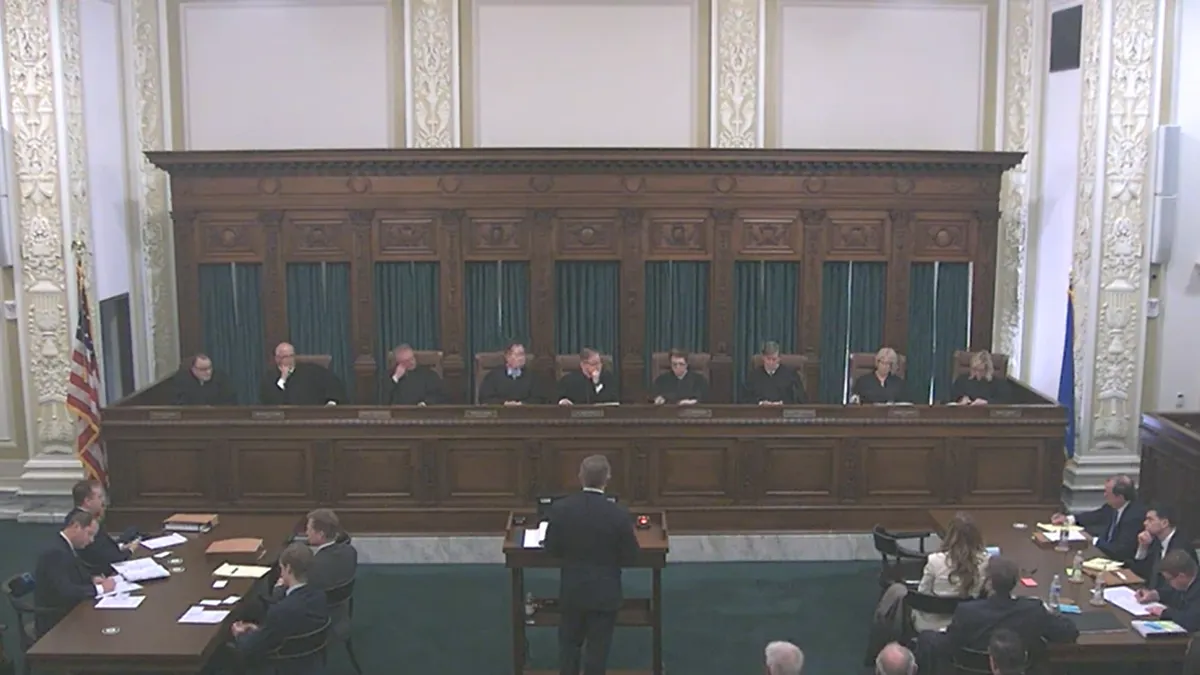The Oklahoma Supreme Court on Tuesday blocked what would have become the nation's first religious public charter school, severing the school from state funding just before it was scheduled to open for the 2024-25 school year. The court directed the Oklahoma Virtual Charter School Board to rescind its contract with St. Isidore of Seville Catholic Virtual School, which the board had approved in October 2023.
"Enforcing the St. Isidore Contract would create a slippery slope and what the framers' warned against — the destruction of Oklahomans' freedom to practice religion without fear of governmental intervention," the justices wrote in a split decision.
Six of nine justices fully signed onto the majority opinion, which held that St. Isidore would violate the Oklahoma Constitution and the federal Establishment Clause, both of which prohibit the use of public money to establish a religious institution.
The decision favors Oklahoma Attorney General Gentner Drummond, who sued the board and the charter school the same month they entered into a contract. The school had already begun hiring employees and enrolling students. It had received over 200 applications, according to a statement on Tuesday from the Archdiocese of Oklahoma City's senior director of Catholic education, Lara Schuler.
Job postings for the school showed some positions called for “a strong, Catholic disposition and spirit of hospitality and excellence.” Teachers would have been “required to convey the Church’s message and to assist in carrying out the Church’s mission.”
During oral arguments over the case in April, attorneys for both sides agreed the school would be the nation's first public school with a faith-based curriculum. The principal would be required to be a practicing Catholic and students would attend Mass.
In Tuesday's ruling, the justices decided that the Oklahoma Charter Schools Act — which considers charter schools as public schools — "does not allow a charter school to be sectarian in its programs, admissions policies, employment practices, and operations."
Drummond, who argued the case in April, said in a statement that, as a result of the state Supreme Court's decision, Oklahomans "can rejoice that they will not be compelled to fund radical religious schools that violate their faith."
"Now Oklahomans can be assured that our tax dollars will not fund the teachings of Sharia Law or even Satanism," Drummond said.
Drummond's view on the issue opposes that of Oklahoma Gov. Kevin Stitt, who previously called St. Isidore "a win for religious and education freedom in Oklahoma."
The divide among conservative leaders reflects the controversial nature of recent U.S. Supreme Court decisions that paved the way for the religious charter's formation. Taken together, Carson v. Makin in 2022 and Espinoza v. Montana Department of Revenue in 2022 gave private institutions access to public funding regardless of their religious use or status.
In those rulings, the Supreme Court left open the door for charter schools to potentially access public funding for religious purposes.
Leaders from the Archdiocese of Oklahoma City and the Diocese of Tulsa, in a joint response to Tuesday's ruling, said they would consider "all legal options" going forward.
Misty Smith, principal of St. Isidore of Seville Catholic Virtual School, said that while the decision is "a setback" for Oklahoma's K-12 students, she "will not give up hope that the Court's error may be corrected."
John Helsley, a spokesperson for The Archdiocese of Oklahoma City, would not comment as to whether they would try to appeal the case to the U.S. Supreme Court.












